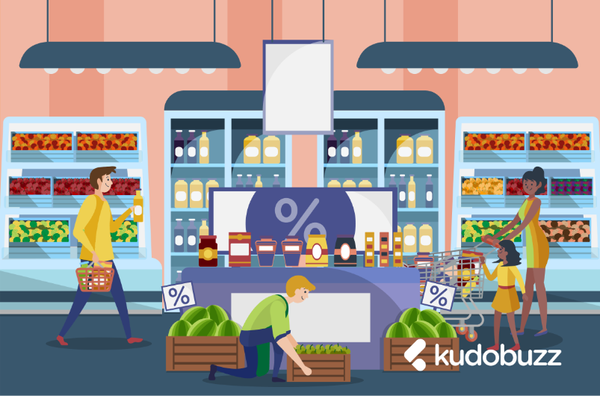What is the psychological reason behind why people shop online, and what influences their decisions? With the fast development of network technology and electronic commerce, online shopping has increased significantly, and understanding the psychology behind online shopping and consumer behavior is crucial for any e-commerce business’s success. Online shopping is very convenient, this is because it allows people to shop from the convenience of their own homes, presenting them with a wider selection of products, offering them the ability to easily compare prices, and also check customer feedback before they are convinced to make a purchase. Behind every click and purchase made online, there’s a jumbled maze of psychological factors that drive consumer behavior.
What then are the psychological factors that drive consumer behavior? These factors/triggers are crucial for creating an effective marketing strategy and enhancing the overall shopping experience.
Let’s look at how and why people buy things online and what influences their decisions:
The Allure of Online Shopping:
1. Convenience And Easy Access: The primary reason for online shopping is simply convenience, that’s the most compelling reason why consumers shop online, because of its convenience and accessibility. For example, you don’t need to get dressed and drive to your favorite store, you can easily visit their website at any time of the day and purchase whatever you want. With just a few clicks, you can navigate their website and select products, compare prices, read their reviews, and make a purchase. This saves you so much time, and you don’t have to go through the hassle of visiting their physical stores.
2. Price Comparisons: One of the good things about shopping online is that you can easily compare prices across various retailers. Most consumers want to compare the prices of products, they want to find the best deals and discounts before finally making a purchase. A lot of e-commerce stores usually offer exclusive online deals and promotions enticing consumers to choose online shopping over in-store shopping.
3. Product/Item Availability: We know the internet never sleeps and neither does online shopping. With online shops being available 24/7, consumers can purchase at any time that suits them. This is a great advantage for consumers who may have irregular schedules or for consumers who like to shop at non-peak hours.
What Triggers Online Shopping? The Psychological Factors
1. Social Influence: Social influence plays a major role in shaping consumer behavior. Social proof such as customer reviews and ratings influences purchasing decisions, this is because positive reviews and high ratings can entice consumers to make a purchase. It is a powerful psychological web where consumers look to the opinions and actions of others to guide their own behavior. You can leverage social proof by using platforms like Kudobuzz to collect and display reviews which helps build trust and credibility with potential buyers.
2. Personalized Experiences and Recommendations: With machine learning on the rise, businesses now use data on consumers’ past purchases, browsing history, and preferences to create recommendations and marketing messages. The chances of consumers making a purchase are very likely to increase due to personalized experiences. This is because personalized experiences make consumers feel valued, appreciated, and understood. Additionally, this personalized approach in turn leads to higher conversion rates and customer satisfaction.
3. Product Scarcity and Urgency: The Psychological principle of scarcity is connected to consumer buying habits. This is where the psychological concept that consumers value items more when they view them as limited comes into play, they are very likely to make a purchase immediately to avoid missing out. E-commerce store owners can use this as a means to create a sense of urgency such as flash sales, low stock alerts, and countdown timers to encourage consumers to purchase to avoid missing out.
4. User Friendliness: A seamless user experience is essential to encourage purchases. Every online shopper expects the websites to be very easy to navigate with clear product images and categories, search functionality, and a straightforward checkout process. When consumers encounter any obstacles or frustrations during their shopping journey, it can lead to cart abandonment. A smooth and stress-free shopping experience is crucial for retaining customers.
The Emotional Drivers of Online Shopping
What is emotion in shopping? Emotions play a significant role in driving consumer behavior, they are like the silent builders of purchasing decisions. Various emotional drivers influence and are influenced by the experience of shopping online. This can include a wide range of emotions like excitement, regret, pleasure, anxiety, or satisfaction that consumers may feel during the stages of online shopping.
Impulsive Buying: Emotions contribute to impulse buying, it is a common consumer behavior influenced by emotions rather than logical decision-making. Online shoppers mostly buy things based on how they look, like appealing product images, limited-time offers, and personalized recommendations can trigger impulse buying by tapping into emotions like curiosity, excitement, and desire for instant satisfaction.
The Fear of Missing Out: The fear of missing out on exclusive deals, discounts, limited-time offers, or popular products can also add to impulse buying and increased spending. Understanding these emotional drivers can help e-commerce businesses capitalize on the fear of missing out by highlighting trending products, and emphasizing scarcity in their marketing efforts to drive more sales.
Retail Therapy: The emotions behind retail therapy is the role of shopping as a coping mechanism. When people experience sadness, stress, anxiety, or even boredom, they may turn to online shopping to elevate their moods or distract themselves. Retail therapy can improve a person’s mood. Browsing, navigating, and buying things online can be a form of distraction and a way to reward oneself. If you understand this emotional concept of online shopping, it can help your e-commerce business develop marketing strategies that echo with consumer’s needs for comfort and enjoyment.
The Importance of Trust in Online Shopping
Security and Privacy Worries: Trust and security are vital for online shoppers especially due to the rise in cybersecurity threats, online scams, and data breaches, consumers need to feel confident that their personal and financial information is secure when they are making online transactions. To alleviate these concerns, e-commerce business owners should provide safe and secure payment pathways/processing and clear and concise privacy policies, this will help reduce worries and help build trust. Additionally, e-commerce business owners should have proactive customer support to address and resolve any issues that consumers may encounter during their shopping process.
Repeat Patronage: The long-term success of an e-commerce business lies in brand loyalty. Building brand loyalty is crucial for business success. When customers trust your brand and feel they are valued, they are more likely to become repeat customers and advocates for your brand. Offering loyalty programs, high-quality products, exceptional customer service, personalized offers, and deals can help build brand loyalty and encourage repeat patronage.
The Influence of Mobile Shopping on Consumer Behavior
Comfort and Accessibility: The exciting thing about online shopping is that consumers can shop on the go while traveling, at home, or waiting in line, they can easily fit online shopping into their daily routines or schedules. With features like one-click purchasing and push notifications, consumers can get alerts of personalized deals like flash sales, discounts, etc. This will encourage frequent engagement and improve the shopping experience.
Increase in Mobile Commerce: Mobile commerce has influenced consumer behavior significantly, this is because there is an increasing usage of smartphones and tablets for shopping online. This has also led to the demand for mobile-friendly websites and apps that provide consumers with a seamless shopping experience. E-commerce business owners should ensure their websites are mobile-friendly to meet consumer expectations.
How Social Media Influences Consumer Behavior
Social Media Impact: Social media platforms like Instagram, Facebook, Twitter, and Pinterest can influence consumer behavior. Reviews, user demonstrations, and recommendations from these platforms can sway purchasing decisions. Users can explore new products, read reviews, and find inspiration on these platforms. For example, user-generated content like customer photos and videos can be added as social proof, influencing other potential buyers.
Social Commerce: Shopping has been made possible through social media, with the integration of shopping features like shoppable posts in-app checkout, and live shopping events. These features have created a seamless shopping experience for consumers. This trend reflects the importance of having a strong social media presence and engaging content for e-commerce businesses.
The psychology behind online shopping is essential for e-commerce businesses looking to improve customer satisfaction. When you understand the factors that influence consumer behaviors, such as social proof, convenience, you can easily create a more engaging and shopping experience. With the growing influence of mobile shopping and social media, leveraging these insights can help e-commerce businesses drive sales, succeed, and build long-lasting business relationships.
Want to learn more on how e-commerce business owners can use buyer psychology to increase sales? Read more on how to leverage consumer behavior and also improve your e-commerce strategy today!
The Psychology of Online Shopping: Understanding Consumer Behavior
Learn the psychological factors that drive online shopping and understand how consumer behavior can help e-commerce businesses improve their marketing strategies, build trust, and boost sales.








